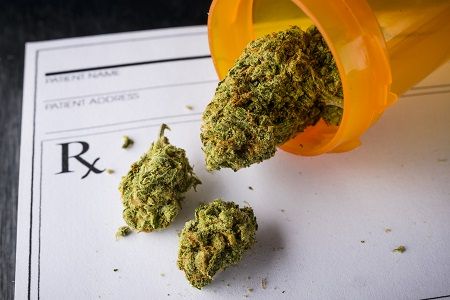Sex Impacts Pain Relief Benefits of Marijuana
Although indications for medicinal marijuana differ by state, pain is a common condition behind a prescription. But the pain relief effects appear to be greater in men.

Although indications for medicinal marijuana differ by state, pain is a common condition behind a prescription. But the pain relief effects of cannabis differ by gender, according to a new study from Columbia University Medical Center (CUMC), and men reap more of the benefits.
“Preclinical evidence has suggested that the experience of pain relief from cannabis-related products may vary between sexes, but no studies have been done to see if this is true in humans,” Ziva Cooper, PhD, associate professor of clinical neurobiology (in psychiatry) at CUMC, said in a news release.
Using 21 male and 21 female recreational smokers, the researchers set out to understand the subjective and physiological effects of marijuana in a double-blind study. The participants were split to receive active cannabis (3.56% to 5.60% tetrahydrocannabinol (THC)) or inactive marijuana (0% THC).
- Related: Medical Marijuana Cuts Migraine Frequency in Half
The Cold-Pressor Test (CPT), where patients immersed their hands in 39°F water, measured pain response. The analysis reported how long it took to report pain (pain sensitivity) and the number of times the participants took their hand out of the cold water.
Active cannabis, compared to inactive, significantly reduced pain in men, but pain sensitivity was not reduced in women. Both sexes did, however, experienced an increase in pain tolerance immediately after smoking marijuana.
In addition, men and women smoking active cannabis had increased subjective ratings when it came to drug strength, feeling “high,” and abuse liability like “good drug effect.”
The findings, published in the journal Drug and Alcohol Dependency, indicate that sex is an independent factor of cannabis effects.
“This study underscores the importance of including both men and women in clinical trials aimed at understanding the potential therapeutic and negative effects of cannabis, particularly as more people use cannabinoid products for recreational or medical purposes,” Cooper concluded.
Also on MD Magazine >>> Medical Marijuana Reduces Opioid Use for Chronic Pain